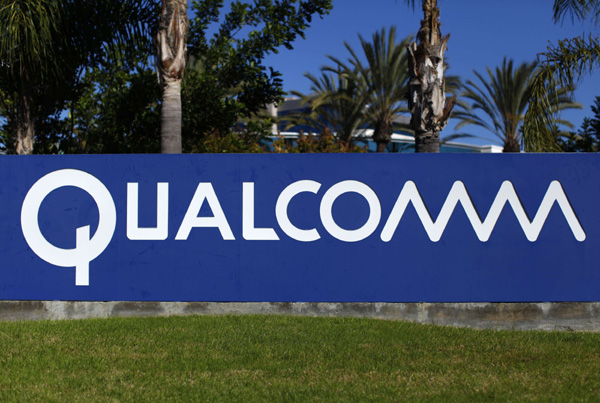 |
|
A Qualcomm sign is pictured in front of one of its many buildings in San Diego, California November 5, 2014. [Photo/Agencies] |
Criticizing the 6.088-billion-yuan ($975 million) fine imposed on chipmaker Qualcomm for violating China's monopoly laws, some Western media outlets say it shows that foreign capital is less welcome in China today. This obviously is not the case.
The fine imposed on the US-based company by the National Development and Reform Commission may be huge, but the legal action was absolutely necessary to establish fair competition in the market.
Since Qualcomm has violated the Anti-Monopoly Law, the NDRC has also directed it to collect royalties on 65 percent of the selling price, instead of the full price, of mobile phones, and offer licenses for its 3G and 4G patents to Chinese mainland companies, separately from its other patents.
These measures will prompt Qualcomm to adopt a fair business model, warn other companies not to indulge in monopoly activities and eventually help create conditions for open competition and to protect the interests of downstream manufacturers and customers.
Because of its many patent rights and monopoly practices, Qualcomm compelled companies that bought its cellphone chips to pay the patent fees repeatedly.
By violating the principle of fairness and making profits by using its technological advantage, the US company has not only undermined the interests of cellphone manufacturers, communication equipment makers and communication service providers at home and abroad, but also made it difficult for other chipmakers to develop their potential. Worse, the exorbitant patent fees and prices charged by Qualcomm have been passed down to customers.
According to Qualcomm's "reverse patent license" permission, manufacturers that use its chips should allow Qualcomm to use their patent free. Such despotic practices allowed Qualcomm to not only make high profits, but also block other companies' market opportunities.

I’ve lived in China for quite a considerable time including my graduate school years, travelled and worked in a few cities and still choose my destination taking into consideration the density of smog or PM2.5 particulate matter in the region.